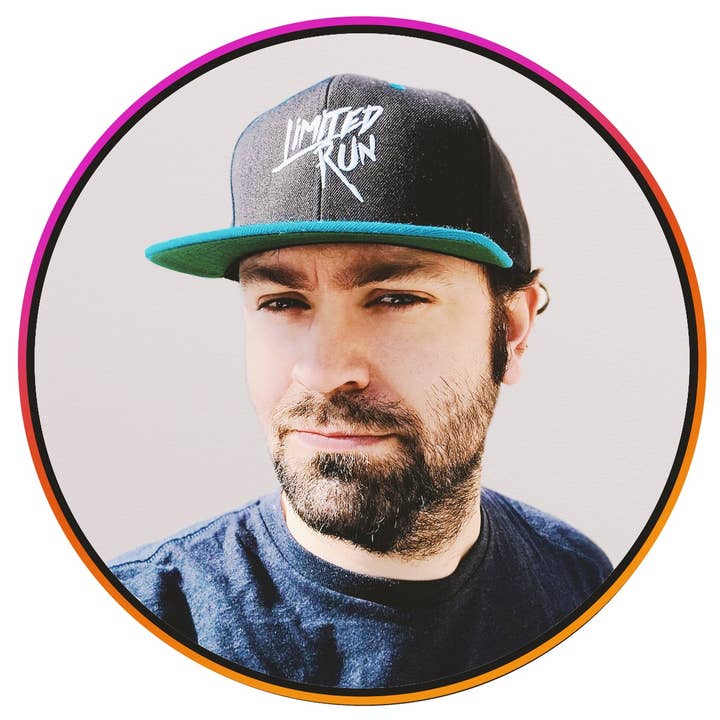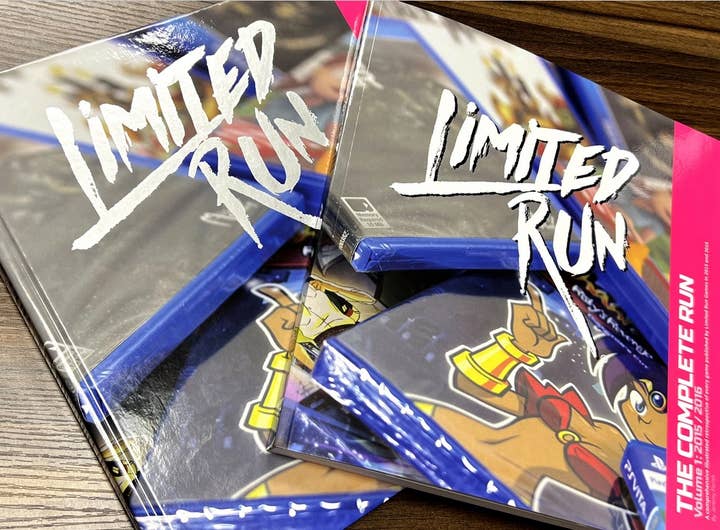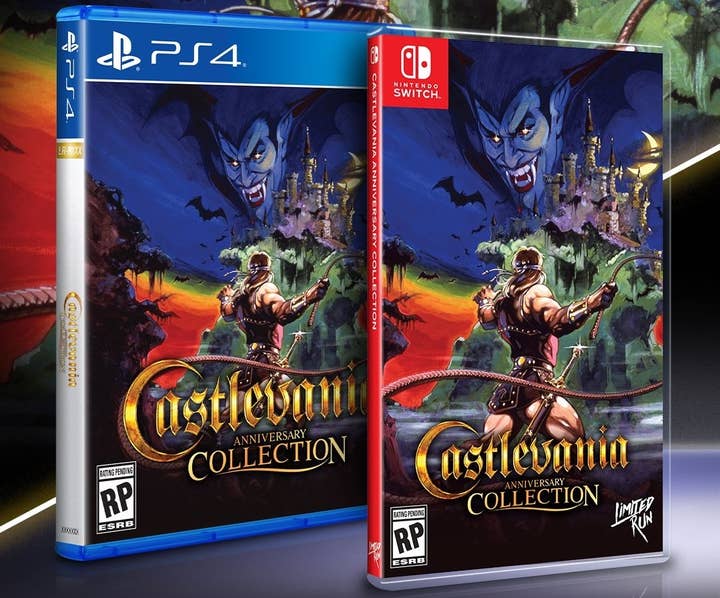Limited Run sees pandemic boosting demand as it constricts supply
Co-founders Josh Fairhurst and Doug Bogart discuss the booming physical market and the company's expansion
It's old news by now that gaming saw an increase in interest over the pandemic, but it wasn't the only beneficiary of a world with people suddenly shut off from many of the activities that would normally take up their discretionary income.
The past two years have seen skyrocketing demand and prices for collectibles of all sorts, from records to Pokémon trading cards, and a somewhat overlapping boost in get-rich-quick speculative pursuits like NFTs and a "meme stock" fad that drove up shares in GameStop and AMC Entertainment beyond any traditional valuation of the companies.

Limited Run Games arguably sits at the intersection of all that. It sells video games, obviously. As for the collectibles and profit-motivated people, the physical games it sells are -- as the name implies -- limited in number, which appeals both to collectors with a nostalgia for the way games used to be consumed as well as profiteers who have seen the record for most expensive video game ever sold jump from $114,000 to $1.56 million during the pandemic.
Limited Run is celebrating its sixth anniversary this week, and while it has steadily grown from a two-person operation to a team of more than 50 over that time, co-founders Josh Fairhurst and Douglas Bogart tell GamesIndustry.biz the last year and a half has been unlikely anything they've seen.
"It's been interesting," Fairhurst says. "In the pandemic, people wanted more stuff across the board. I don't know if it was the stimulus checks or what, but demand for physical goods of all types has gone through the roof. That kind of created the supply chain crisis we're sitting in right now."
"It can take a year to get stuff over from China right now"
Josh Fairhurst
Fairhurst explains that at the start of the pandemic, there was so much demand for goods from China that boats were in such a hurry to get back and make another shipment that they weren't even waiting to reload with empty shipping crates to take back. That might have been fine as a triage tactic, but as the pandemic dragged on and demand held up, it was clearly unsustainable.
"It got to the point where there were no shipping crates left in China, and now we're at a point where it's almost impossible to get goods out of China," Fairhurst says. "You have to wait months and months and months just to get a shipping crate... It can take a year to get stuff over from China right now. Manufacturing will complete pretty fast, but just trying to get stuff on a boat and get it over here is just absurd."

Fairhurst says he and Bogart first noticed the increased demand in games when they went on one of their semi-regular "game hunts" in which they head out to places they've never been before and scour the pawn shops and classic game stores there to see what they can find. They saw the prices of old games surging at the same time the availability of games cratered.
"People were locked up inside and were like, hey I'm going to play these N64 games," Fairhurst says. "Prices just shot up overnight. They tripled for some of these things. For whatever reason, people just wanted to have these physical games back in their hands... I don't want to speculate on whatever weird things are driving people to want physical stuff right now, but it's affected everyone. Action figure sales have gone up, collectibles have gone up, vinyl's gone absurd. Pokémon cards, you can barely even find them in stores right now."
"Some demand is going to drop off but it's not going to be that bad"
Douglas Bogart
Fairhurst says Limited Run is no exception to that, with the business seeing notably increased demand for its products since the start of the pandemic. And even though vaccines are helping to curb the impact and spread of COVID-19 and many markets are beginning to re-open, Bogart doesn't think the demand for Limited Run's offerings is going to dip too badly.
"I think now that they're in this, a lot of people are going to enjoy it and keep going," Bogart says. "Some demand is going to drop off but it's not going to be that bad. The only thing I'm hoping for is shipping speeds and production speeds go back to normal because it's kind of a nightmare."
Fairhurst is similarly optimistic because Limited Run -- despite the fairly niche concept at the heart of the company -- is actually somewhat diversified both in terms of its products and the audiences they would appeal to. The audience for a physical copy of a new indie game on Switch is not necessarily the same as the audience for an NES cartridge re-release of 1990 sci-fi shooter SCAT or the audience for a vinyl LP of the King of Fighters 2002 soundtrack signed by the graphic designer who worked on the game.
Within those audiences the company has also identified a market for Limited Run: The Complete Run Vol. 1, a retrospective coffee table book on the company's inaugural year of operations, offering in-depth documentation of its first two dozen releases.

"There aren't a lot of people at this point buying everything we release," Fairhurst says. "During the pandemic we certainly saw an uplift when it came to notable IPs, games people have heard of like Scott Pilgrim, Streets of Rage, Panzer Dragoon and things like that, but I don't know if we saw a huge uptick in our normal, mid-tier indie releases and more hardcore mainstream stuff. I think that's going to healthily maintain itself for the next few years.
"Now our main goal is to bring these games back into availability again so your only option of playing them isn't going to be ROMs, or bootlegs, or really expensive retro carts"
Josh Fairhurst
"I don't know if the explosive growth on the bigger franchises is going to hold, but the good news for us is we always try to make do with whatever resources we have. We don't tend to just grow at insane rates in terms of our workforce or expenditures. We always grow intelligently so we won't be caught off-guard necessarily by demand reducing or going down on certain things. We're always scaled for the worst-case scenario."
One of the markets Limited Run is growing into is actually digital games, a move that will go hand-in-hand with the development of its Carbon Engine, an emulation engine that takes code meant to run on older systems and enables them to run on the Switch, PlayStation 4/5, and soon PC and Xbox.
"It's more preservation in a truer sense than what we were originally doing, which was just physically preserving games," Fairhurst says. "Now our main goal is to bring these games back into availability again so your only option of playing them isn't going to be ROMs, or bootlegs, or really expensive retro carts."
Currently the Carbon Engine can bring forward games that originally ran on the Game Boy, Game Boy Color, Game Boy Advance, NES, Super Nintendo and Genesis, but Limited Run is looking to expand that further.
"As we get into next year, we're adding things like the PlayStation 1," he says, "That's a big thing for me. I love a lot of the games on PS1 and there are thousands of games on that platform that have not been re-released and maybe a lot of people forgot. So it'll be nice to be able to bring a lot of that stuff back. We're also looking at N64 and some older stuff as well like the Master System, MSX, MSX 2 Turbo..."
The company will also launch its first physical game for Xbox platforms next year, a belated move that Fairhurst says has been a result of the sheer size of Microsoft as a company and learning the processes that need to be taken to launch physical games for its platforms.

Physical games are still a niche market, but they've been growing consistently, and Fairhurst says AAA publishers have been taking notice. Limited Run has paired with Konami for a handful of Castlevania physical releases -- including the first-ever English release of Castlevania: Rondo of Blood for the defunct TurboDuo platform -- and also teamed with Retrobit and Capcom for the first official North American release of Mega Man: Wily Wars for the Sega Genesis that Fairhurst said "exceeded everybody's expectations."
"[Big companies are] seeing the prices on these older games are going up. They're seeing the demand is going up, and their licensing departments are having to spend all these cease-and-desists to bootleg manufacturers making bootleg carts"
Josh Fairhurst
"It's a thing I think every company is looking at," he says of the AAA publishers. "They're seeing the prices on these older games are going up. They're seeing the demand is going up, and their licensing departments are having to spend all these cease-and-desists to bootleg manufacturers making bootleg carts. They're super well aware of how active the market is for this stuff and they're looking for opportunities and ways to bring it out. With Capcom and some of these other places dipping their toes in it, I think it's going to become a bigger thing as time goes on."
But if the market is big enough to attract the interest of publishers the size of Capcom and Konami, isn't it also big enough to attract a deep pocketed competitor that could try to muscle Limited Run and the cottage industry of fellow physical upstarts out of the market? Neither Fairhurst nor Bogart seem worried about that idea.
"The way we set up shop early on was to mainly help developers," Fairhurst explains. "And part of that was that we never took royalties that were so big they'd make us rich or line our pockets. So if a big company looks at the margins we're pulling in, they're obviously enough for us to get by on, to grow on and be successful with, but we basically did it for the lowest amount of money possible, so there's not much room for someone to come in and throw a whole bunch of money in an unseat us. They would have to make almost nothing to do that. They would have to run at an extreme deficit for a very long time."
He adds, "I think we've firmly established ourselves as the leaders in this field and not to sound egotistical or whatever, but I think it would be difficult for someone to try to unseat us. I don't think it would be worth their time or money."
That said, he does see at least one downside to the growing interest in the market.
"I do think as more people come along into the space, it's going to be harder and harder for people to make money off of physical releases of games that are less known," he says. "Because the market might get saturated with them, and the novelty of having some of these smaller games physically is going to wear off. But I don't think there's ever not going to be a market for something like a physical Castlevania Anniversary Collection. People are always going to want strong games physically, games that they love physically.
"One of the things I loved when we started out was we could release very obscure games that hadn't sold a lot of numbers digitally in physical form and they would do well, because there was this novelty and appeal in having it in physical form. It was making so much money for those developers it would sometimes be ten times as much as they made digitally through our physical release. It would be enough money to keep them in business for another year or a year and a half. And as the market becomes more saturated, it's going to be harder to have success stories like that with smaller, lesser known titles."
